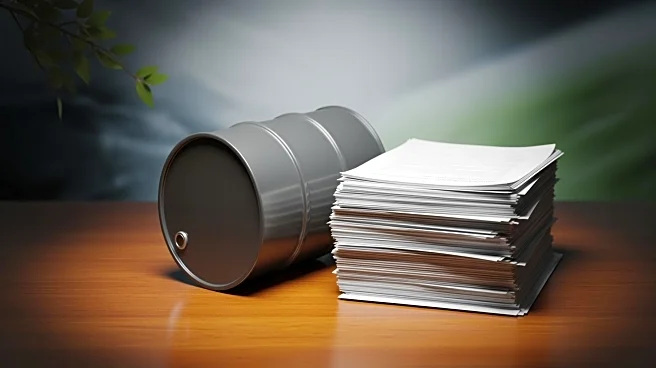What's Happening?
Exxon Mobil Corporation has filed a lawsuit against the state of California, challenging two climate disclosure laws enacted in 2023. The company argues that these laws infringe on its free speech rights
by compelling it to adopt a narrative that large corporations are primarily responsible for climate change. The lawsuit, filed in the U.S. Eastern District Court for California, seeks to prevent the laws from taking effect next year. ExxonMobil contends that it has consistently disclosed its greenhouse gas emissions and climate-related risks but opposes the new reporting requirements. The laws, Senate Bill 253 and Senate Bill 261, mandate large companies to disclose a broad spectrum of emissions and the financial risks posed by climate change, respectively. ExxonMobil criticizes the methodology, which it claims unfairly targets large companies and requires speculative disclosures about future developments.
Why It's Important?
This legal battle highlights the ongoing tension between major corporations and state governments over climate accountability and transparency. The outcome of this case could set a precedent for how climate-related disclosures are regulated across the United States. If ExxonMobil succeeds, it may embolden other large corporations to challenge similar regulations, potentially hindering efforts to increase corporate transparency on environmental impacts. Conversely, if California prevails, it could strengthen the state's position as a leader in climate policy and encourage other states to adopt similar measures. The case underscores the broader debate on balancing corporate interests with environmental responsibility and public transparency.
What's Next?
The court's decision on whether to grant an injunction against the laws will be a critical next step. If the injunction is granted, it could delay the implementation of the laws and provide ExxonMobil with a temporary victory. However, if the court denies the injunction, ExxonMobil may need to comply with the laws while continuing its legal challenge. The case is likely to attract significant attention from environmental groups, other corporations, and policymakers, potentially influencing future legislative efforts on climate disclosure.










